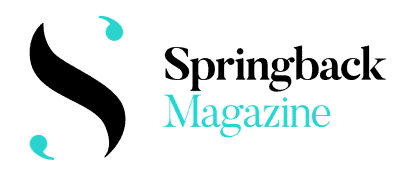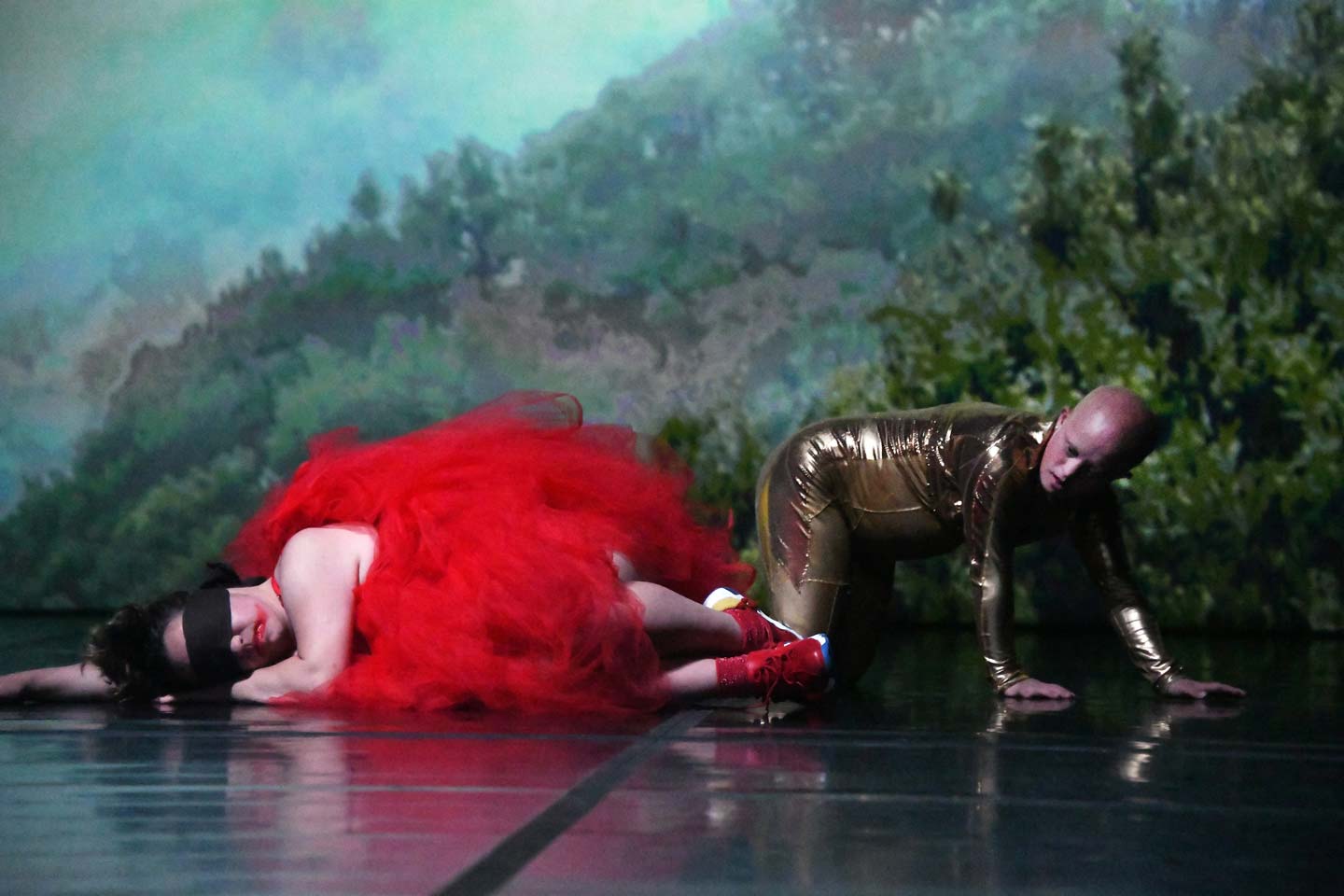Maria La Ribot is a daring choreographer and the bets were high when in 2018 she announced a collaboration with Dançando com a Diferença, a Portuguese company of differently abled people. Many have ventured – and slipped up – on this path before. La Ribot too, has walked on the eggshells, to an uneven result.
Greeted by a still shot of a foggy Madeira forest, we are instantly struck by a powerful solo. Maria João Pereira crosses the stage in a wheelchair to join another performer, lying immobile. She laboriously gets rid of the vehicle, pushes it away, and slowly slides to the ground. Shivering head-to-toe, she crowns herself with a rainbow headdress and draws indistinct symbols on her fellow performer’s skin. This opening sequence offers the most astounding moment of the evening. Empowering and liberating. A body relieved, a free body!
Slumbery solos and group feasts follow, some over-long, others breathtaking, all led by La Ribot’s curatorial music choice, dragging us from jazz piano to custom groovy beats. Slightly too present wall-sized videos by Raquel Freire feature joyous field feasts, trees-in-fog stills and hallucinatory tunnel rides – a marvel to watch, and deftly stitching together this roughly sewn show. Driven through a soothing video of a dimly lit Madeira tunnel and by a dreamy Lynchian solo dance, the show gains in hypnotising intensity but loses its message half-way.
Aiming to showcase the singular body language of each performer, La Ribot seems to have left the bigger picture aside. Granting a full freedom to her performers in a garland of touching solos and you-think-it’s-messy-but-it’s-not group scenes, she still does not seem to unveil the final goal of the gig. An astonishing solo performer herself, La Ribot has been successfully claiming her radical ‘empowerment through autonomy’ approach throughout her career. Happy Island, though, feels like a random succession of isolated portraits that La Ribot seems more to indulgently observe than to direct.







